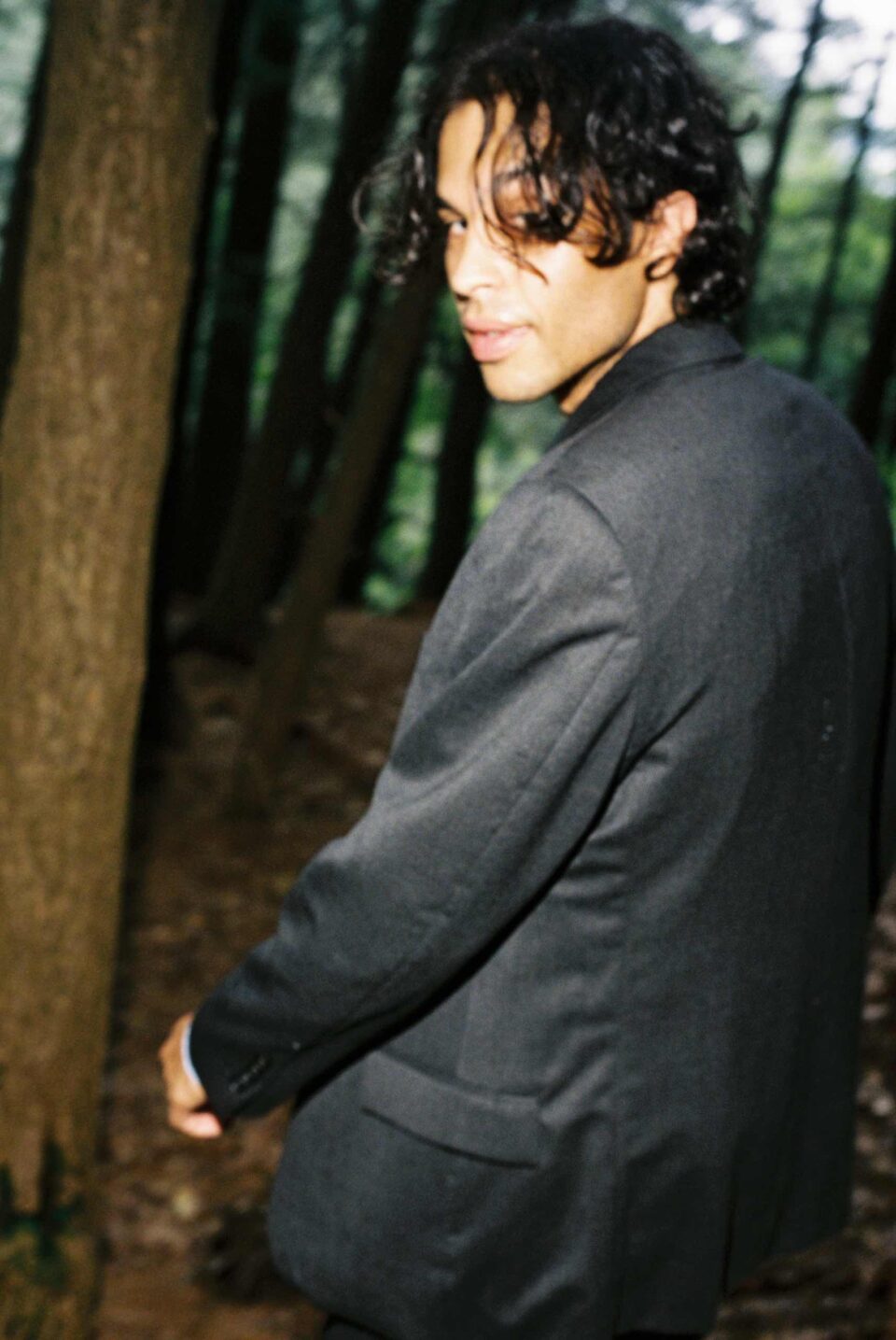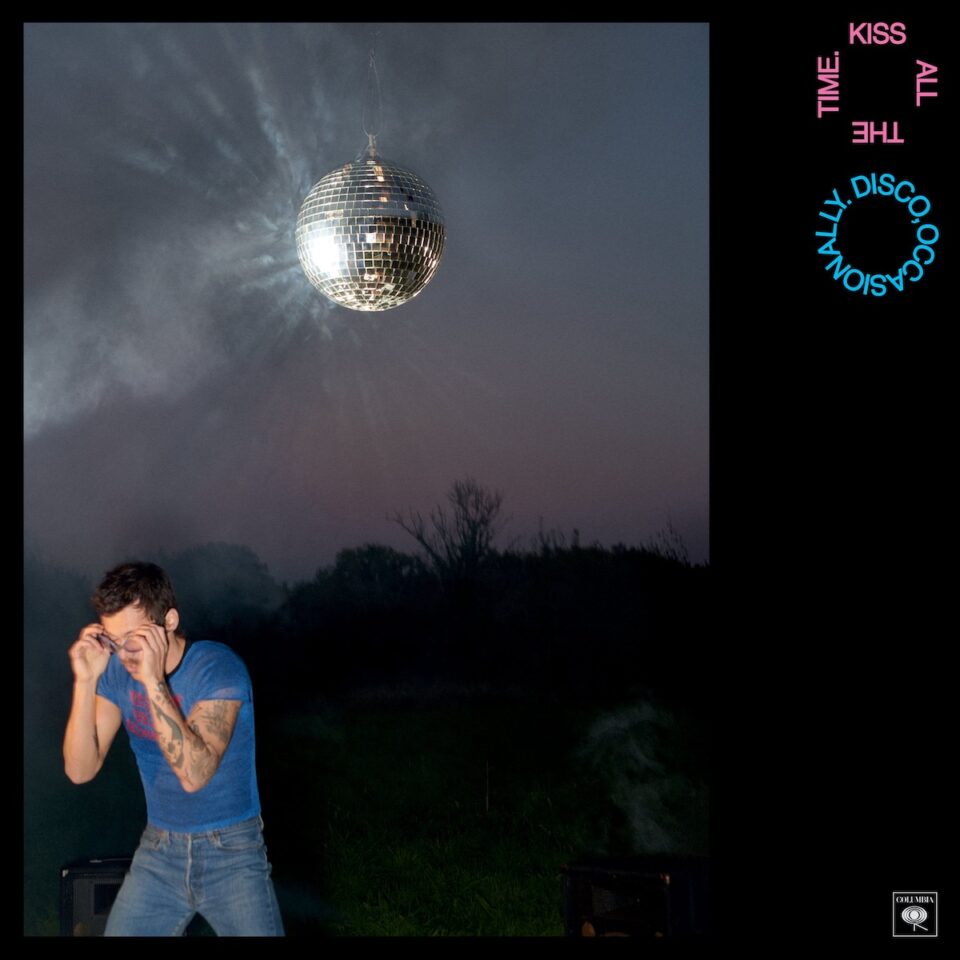BACKSTORY: Chris Taylor has been shattering the divide between glitched-out hip-hop and pop music since his 2019 debut EP, Truck Music
FROM: Philadelphia, now living in Upstate New York
YOU MIGHT KNOW HIM FROM: Injury Reserve’s chaos-infused remix of his 2021 Laraaji-assisted track “Ghost”—or the 2021 EP the original version appeared on, Year of the Orc
NOW: Releasing his Partisan Records debut, Starchris, inspired by video games like Elden Ring and NieR Automata
The creation of Chris Taylor’s debut Body Meat full-length, Starchris, mirrors the experience of leaving his Philadelphia artistic community and making a new life for himself in Upstate New York. Taylor was apprehensive about leaving the scene he’d cut his teeth in, but at the same time, he and his wife felt stuck. Musically, he was in a rut, sketching and erasing the songs that would make up Starchris again and again, circling something that would be intriguing but losing the thread as quickly as he’d discovered it. Something about the move—perhaps looking outside his bedroom window and seeing mountains instead of city streets, or simply the freshness of a new start—allowed Taylor to finally complete Starchris. Not only is it the finest release he’s put out to date, but also a beautiful collision of all the music Taylor loves.
Though he was hesitant about leaving the city he helped forge a community within, as Taylor tells me, Philly’s DIY scene had begun to evolve into new directions in the post-pandemic landscape. “The scene that I was involved in, everyone was kind of doing their own thing and going their own way. There was a younger crowd that was doing their own thing in Philly, and I didn’t feel like I needed to insert myself there,” he explains. “I’d already done all that stuff. So let them have fun. I know there are a lot of people that feel crazy about that, but it’s like, let them do their thing.” Perhaps this naturally cynical energy of the old guard—the people that walked uphill in the snow to and from school—pushed Taylor away, but this changing order allowed him to recontextualize his place in the music world. “When I was a kid, I would listen to the worst music. Kids are just so much cooler these days,” he adds with a chuckle.
“There was a younger crowd that was doing their own thing in Philly, and I didn’t feel like I needed to insert myself there. I’d already done all that stuff. So let them have fun.”
With fresh air, natural surroundings, and not much to do outside of making music and going to work at the restaurant where he’s a line cook, Taylor began assembling Starchris. For him, the process of writing and recording are inextricably linked, with one subtly evolving into the other without him realizing he’s making an album. “I’m building a prototype and then I’m replacing the janky pieces with more polished pieces. I don’t ever do demos,” he says. “I’ll start sketching and then the sketch turns into a real drawing.”
It’s in this way that Starchris gets its essence. It’s raw and immediate, but meticulously crafted—like a sweater it takes years to knit, but once you put it on, you don’t notice the stitchwork. Take “Electrische,” which pulses with a magnetic drum groove and slurred vocals that weave in and out of a barrage of handclaps. The rich Auto-Tune manipulating Taylor’s voice gives the song a texture that practically melts against the subtly shifting rhythmic patterns. It’s only because of the repetition of vocals against the minute changes he introduces that the unexpected breakdown lands as hard as it does. You know when someone tries to remove a tablecloth without breaking the dinnerware? That’s what Taylor does here.

“I’ve always been interested in game development, and as soon as I finished with this record, I realized I was making a game in sound.”
Taylor was also deeply inspired by video games while making the record, particularly Elden Ring and NieR Automata. The album does, in many ways, sound like a video game soundtrack, but Chris cleverly centers his own voice as the protagonist, exploring previously undiscovered worlds and navigating obstacles. In writing, Taylor imagined his character having to break a mysterious curse by album’s end. Suitably, Starchris’s penultimate track “Ōbu No Seirei (Spirit of an Orb)” is an eight-minute epic of mystery, intrigue, and, eventually, triumph. “Feeling lost is a problem at best,” Taylor sings before adding, “I’ll be fine when the vision ends.” “While writing, I realized I was taking a lot of similar practices with what you do in game design,” he explains. “I’ve always been interested in game development, and as soon as I finished with this record, I realized I was making a game in sound.”
Toward the end of our conversation, I ask Taylor what he imagines the ideal listener for the project to be. While he initially shies away from answering, he eventually touches upon something that’s quite moving: “I really do hope it makes someone want to make something, anything,” he explains. “I don’t really make things for other people. These albums are for me, and that’s a great feeling.”
Chris Taylor gets so much joy from the Body Meat journey that if one person can be inspired to find a similar joy, he considers Starchris a success. “If it helps someone want to make something, there’s nothing better in my eyes.” FL








